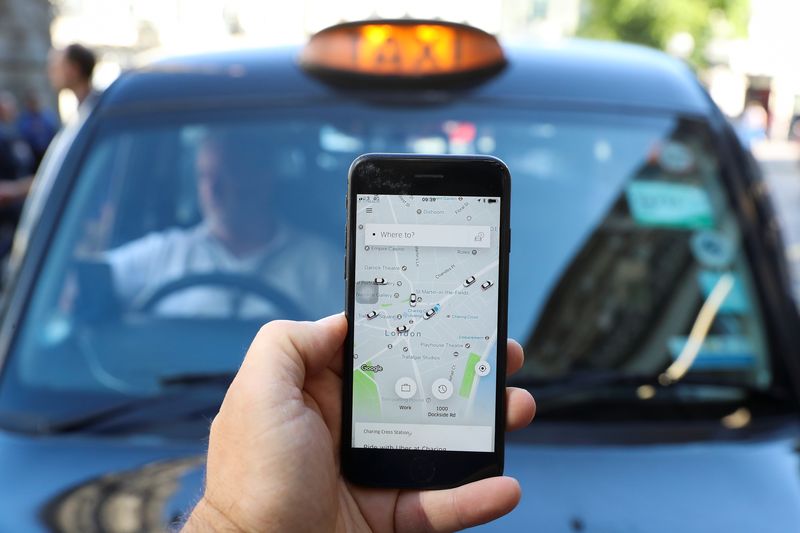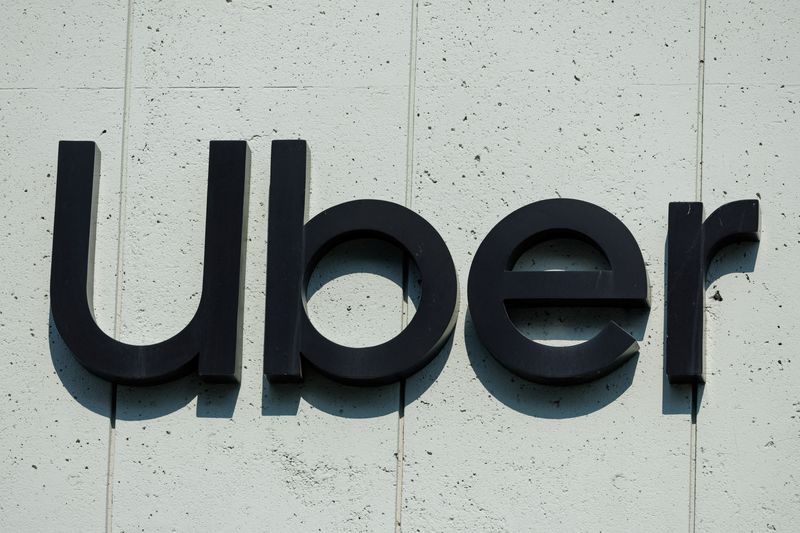By Akash Sriram
(Reuters) -Uber Technologies signaled a further slowdown in its mainstay app-based taxi business as it forecast fourth-quarter gross bookings below Wall Street estimates, sending its shares down nearly 8%.
Bookings growth, a key measure of ridership for online taxi operators, slowed to a more than one-year low in the third quarter and fell short of analysts' forecasts.
"If near-term growth investors want much more growth, like acceleration, and they didn't get it, they'd be disappointed," said Adam Ballantyne, senior analyst at Cambiar Investors, which holds Uber (NYSE:UBER) stock.
Shares of rival Lyft (NASDAQ:LYFT), which is set to report quarterly results next week, fell 2.4%.
Uber's outlook underlined concerns about weakening demand in the ride-hailing industry in recent quarters as an uncertain economy and high inflation weigh on commuters.
"It's likely that there's been a bit of a shift towards cheaper modes of transport," said Susannah Streeter, head of money and markets at Hargreaves Lansdown.
Uber, the dominant player in the North American ride-sharing market, sees suburban areas in the U.S. and elsewhere as a next growth driver amid worries about market saturation.
"It's a common misconception that almost everyone already uses Uber," CEO Dara Khosrowshahi said in his prepared remarks.
He said the company plans to capture suburban markets through better pricing strategies for longer distances and by focusing on features that allow people to wait and reserve rides in these areas.
Gross bookings for Uber's mobility business grew 26.4%, with user engagement hitting an all-time high. Overall revenue for the third quarter came in at $11.19 billion, beating the analysts' average estimate of $10.98 billion.
Net income attributable to Uber stood at $2.61 billion in the third quarter, including a $1.7 billion pre-tax gain related to the company's equity investments, while operating profit was a record $1.06 billion.

Adjusted earnings before interest, taxes, depreciation and amortization - a closely-watched profitability metric - came in at $1.69 billion, compared with expectations of $1.64 billion.
The company forecast fourth-quarter adjusted EBITDA between $1.78 billion and $1.88 billion versus expectation of $1.84 billion.
